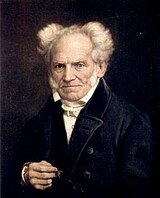Before you vote please read the post.
From Wikipedia, Determinism.Determinism
Determinism (specifically causal determinism) is the concept that events within a given paradigm are bound by causality, where the second event is a consequence of the first.) in such a way that any state (of an object or event) is, to some large degree, determined by prior states.
(Causality is the relationship between an event (the cause) and a second event (the effect), where the second event is a consequence of the first.)
Hence "determinism" is the name of a broader philosophical view that conjectures that every type of event, including human cognition (behaviour, decision, and action) is causally determined by previous events. In philosophical arguments, the concept of determinism in the domain of human action is often contrasted with free will. The argument called indeterminism (otherwise "nondeterminism") negates causality as a factor and contradicts deterministic argument.
Determinism
From Wikipedia,Varieties of determinismVarieties of determinism
Causal (or Nomological) determinism [1] generally assumes that every event has an antecedent cause in an infinite causal chain going back to Aristotle's Prime Mover or the beginning of the universe. Determinists believe that there is nothing uncaused or self-caused (causa sui). Research in quantum mechanics complicates this position further (see 'Arguments' section below). Such determinism is sometimes illustrated by the thought experiment of Laplace's demon.
Logical determinism or Determinateness is the notion that all propositions, whether about the past, present, or future, are either true or false. A belief in Causal Determinism along with this Logical Determinism together define what is called 'Hard Determinism' (discussed further below). Note that one can support Causal Determinism without necessarily supporting Logical Determinism (depending on one's views on the nature of time) and vice versa. The problem of free will is especially salient now with Logical Determinism: how can choices be free, given that propositions about the future already have a truth value in the present (i.e. it is already determined as either true or false)? This is referred to as the problem of future contingents.[1] Often synonymous with Logical Determinism are the ideas behind Spatio-temporal Determinism or Eternalism: the view of special relativity. J. J. C. Smart, a proponent of this view, uses the term "tenselessness" to describe the simultaneous existence of past, present, and future. In physics, the "block universe" of Hermann Minkowski and Albert Einstein assumes that time is simply a fourth dimension that already exists (like the three spatial dimensions). In other words, all the other parts of time are real, just like the city blocks up and down one's street, although we only ever perceive one part of time.
Varieties of determinism
From Wikipedia, Free will and determinismFree will and determinism
Philosophers have argued that either Determinism is true or Indeterminism is true, but also that 'Free will' either exists or it does not. This creates four possible positions. Compatibilism refers to the view that free will is, in some sense, compatible with Determinism. The three 'Incompatibilist' positions, on the other hand, deny this possibility. They instead suggest there is a dichotomy between determinism and free will (only one can be true).
To the Incompatibilists, one must choose either free will or Determinism, and maybe even reject both. The result is one of three positions:
Metaphysical Libertarianism (free will, and no determinism) a position not to be confused with the more commonly cited Political Libertarianism
Hard Determinism (Determinism, and no free will)
Hard Indeterminism (No Determinism, and no free will either).
Thus, although many Determinists are Compatibilists, calling someone a 'Determinist' is often used to denote the 'Hard Determinist' position.
The Standard argument against free will, according to philosopher J. J. C. Smart focuses on the implications of Determinism for 'free will' [7]. He suggests that, if determinism is true, all our actions are predicted and we are not free; if indeterminism is true, our actions are random and still we do not seem free.
Implications
Some determinists argue that materialism does not present a complete understanding of the universe, because while it can describe determinate interactions among material things, it ignores the minds or souls of conscious beings.
A number of positions can be delineated:
Immaterial souls exist and exert a non-deterministic causal influence on bodies. (Traditional free-will, interactionist dualism).[8][9]
Immaterial souls exist, but are part of deterministic framework.
Immaterial souls exist, but exert no causal influence, free or determined (epiphenomenalism, occasionalism)
Immaterial souls are all that exist (Idealism).
Immaterial souls do not exist — there is no mind-body dichotomy, and there is a Materialistic explanation for intuitions to the contrary.
Another topic of debate is the implication that Determinism has on morality. Hard determinism is particularly criticized for making moral judgements impossible.
Free will and determinism
For this article Wikipedia mentions following references and bibliography .
And external links.
http://en.wikipedia.org/wiki/Determinism#References_and_bibliography
"References and bibliography
Daniel Dennett (2003) Freedom Evolves. Viking Penguin.
John Earman (2007) "Aspects of Determinism in Modern Physics" in Butterfield, J., and Earman, J., eds., Philosophy of Physics, Part B. North Holland: 1369-1434.
George Ellis (2005) "Physics and the Real World," Physics Today.
Epstein J.M. (1999) "Agent Based Models and Generative Social Science," Complexity IV (5).
-------- and Axtell R. (1996) Growing Artificial Societies — Social Science from the Bottom. MIT Press.
Kenrick, D. T., Li, N. P., & Butner, J. (2003) "Dynamical evolutionary psychology: Individual decision rules and emergent social norms," Psychological Review 110: 3–28.
Albert Messiah, Quantum Mechanics, English translation by G. M. Temmer of Mécanique Quantique, 1966, John Wiley and Sons, vol. I, chapter IV, section III.
Nowak A., Vallacher R.R., Tesser A., Borkowski W., (2000) "Society of Self: The emergence of collective properties in self-structure," Psychological Review 107.
Schimbera, Jürgen / Schimbera, Peter: Determination des Indeterminierten. Kritische Anmerkungen zur Determinismus- und Freiheitskontroverse. Verlag Dr. Kovac, Hamburg 23 September 2010, ISBN 978-3-8300-5099-5."
[/SIZE]
http://plato.stanford.edu/entries/determinism-causal/
http://www.ucl.ac.uk/~uctytho/dfwIntroIndex.htm
http://www.informationphilosopher.com/freedom/determinism.html
http://www.galilean-library.org/int13.html
I am closest to hard determinism.
But I can not accept that I do not have free will.
You?
Last edited:




